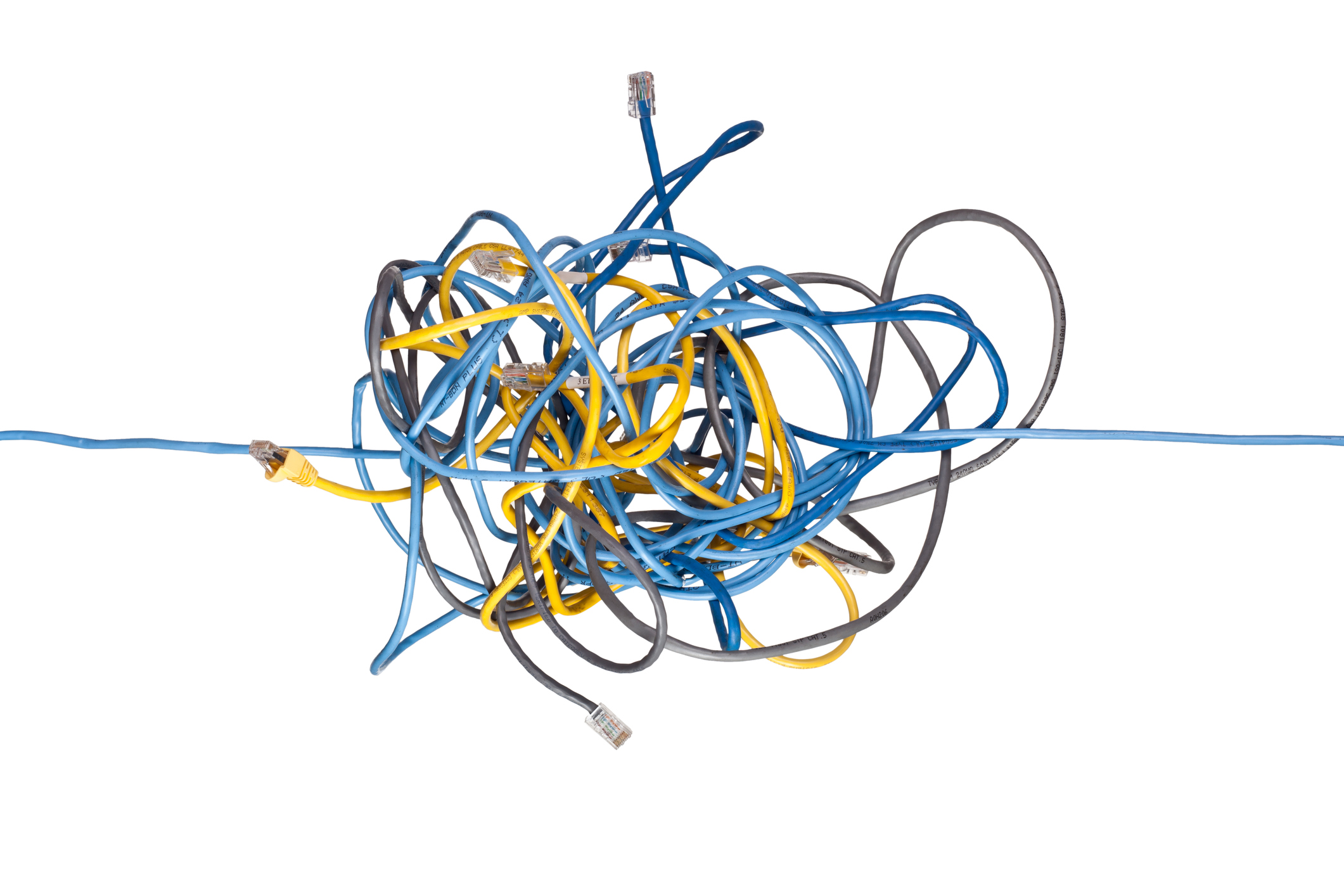Net neutrality is dead. Good riddance.
Throttle the internet!


Net neutrality is dead. This is a good thing.
Even if there were no other compelling arguments in favor of killing net neutrality (though there are), the end of net neutrality would be welcome because it will frustrate the hopes of the largest group temper tantrum thrown by non-toddlers in recent American history.
Has this country ever seen a more simperingly childish mob than the one responsible for the outcry over this boring prudential question concerning the allocation of hertz? Has so much canned emotion ever been spilled over so bland and technocratic and uniquely prudential an issue? Having strong feelings about net neutrality — which essentially mandates that your internet service provider treats all internet traffic and data equally — is like getting upset over a public-access TV debate on the generic ballot or the proceedings of the House of Representatives Subcommittee on Fisheries, Wildlife, Oceans, and Insular Affairs.
Subscribe to The Week
Escape your echo chamber. Get the facts behind the news, plus analysis from multiple perspectives.

Sign up for The Week's Free Newsletters
From our morning news briefing to a weekly Good News Newsletter, get the best of The Week delivered directly to your inbox.
From our morning news briefing to a weekly Good News Newsletter, get the best of The Week delivered directly to your inbox.
If nothing else, ludicrous statements like the one from the heads of the New York, Brooklyn, and Queens Public Library systems calling the proposed change "appalling" and the gravest threat to education this country faces do the helpful work of reminding us that, like public schools, libraries in this country are now little more than transmission centers for digital entertainment.
Meanwhile, Ajit Pai, the chairman of the Federal Communications Commission, has received death threats against his children. A man in Syracuse is facing federal charges after leaving a voicemail at the office of Rep. John Katko (R-N.Y.). "Listen Mr. Katko, if you support net neutrality, I will support you. But if you don't support net neutrality, I will find you and your family and I will kill you all. Do you understand? I will literally find all of you and your progeny and just wipe you from the face of the Earth." The FCC hearing itself had to be briefly evacuated Thursday after someone apparently called in a bomb threat. The only difference between the hordes of fideistic pro-net neutrality campaigners and the #GamerGate movement is that the former have been officially sanctioned by right-thinking liberals, who never miss an opportunity to shill on behalf of capital.
Indeed, from Teen Vogue to The Washington Post to GameInformer.com, liberal opinion is united in its support of net neutrality. But on its face, net neutrality is absurd. The idea that internet service providers should be forced to provide unlimited access to content transmitted indiscriminately whether it is old episodes of Sesame Street, pornographic videos of simulated rape, or a column at The Week, makes as much sense as saying that a brewing company should be able to suck up all the water in a river so long as people like drinking it. We do not force bookstores to stock certain volumes or restaurants to prepare every conceivable dish. The prospect of a segregated internet in which much of the crap now gumming up the works remains legal but available only to those willing to pay a premium to access it is a welcome one.
But there is another aspect of this debate that is rarely mentioned, one that deserves a certain amount of consideration. In the last decade the internet has changed every aspect of our lives in ways that we have largely accepted without a moment's hesitation.
As but one example: Was it a good thing — for people, commerce, or art — that Netflix destroyed the video store industry? As Matt Novak observed recently, the replacement of Blockbuster by online streaming has not meant that we are all allowed to watch whatever movies we like all the time. Say what you want about the musty old Family Video where the only thing more remarkable than the number of cigarettes the middle-aged woman behind the counter smoked was her apparently endless ability to enjoy Ben-Hur on VHS; at least it had Citizen Kane and Seven Samurai on the shelves in addition to the latest Hollywood garbage. Meanwhile, what about all the people who used to make $35,000 a year managing their local corporate video franchise, to say nothing of all the teenagers and 20-somethings who used to stand behind the counter? Was it worth it so that a much smaller number of programmers and executives could make a good deal more money and you can enjoy Wolfcop without putting on clothes? What was wrong with going to the store and picking out a CD (and songwriters making money from the sale) instead of letting a YouTube algorithm decide what song you stream next?
I rather like that "throttle," a good old-fashioned strong verb that meant "strangle or kill" before it was an engineering term, has become the word we use to refer to the practice of internet service providers hindering the transmission of pornographic videos, online shoot-em-up games, and HBO reruns. These are all things that deserve to be throttled. Throttle away.
A free daily email with the biggest news stories of the day – and the best features from TheWeek.com
Matthew Walther is a national correspondent at The Week. His work has also appeared in First Things, The Spectator of London, The Catholic Herald, National Review, and other publications. He is currently writing a biography of the Rev. Montague Summers. He is also a Robert Novak Journalism Fellow.
-
 Critics' choice: 2025 James Beard Award winners
Critics' choice: 2025 James Beard Award winnersFeature Featuring a casually elegant restaurant, recipes nearly lost to war, and more
-
 How will Trump's spending bill impact student loans?
How will Trump's spending bill impact student loans?the explainer Here's what the Republicans' domestic policy bill means for current and former students
-
 Can the US economy survive Trump's copper tariffs?
Can the US economy survive Trump's copper tariffs?Today's Big Question The price hike 'could upend' the costs of cars, houses and appliances
-
 The last words and final moments of 40 presidents
The last words and final moments of 40 presidentsThe Explainer Some are eloquent quotes worthy of the holders of the highest office in the nation, and others... aren't
-
 The JFK files: the truth at last?
The JFK files: the truth at last?In The Spotlight More than 64,000 previously classified documents relating the 1963 assassination of John F. Kennedy have been released by the Trump administration
-
 'Seriously, not literally': how should the world take Donald Trump?
'Seriously, not literally': how should the world take Donald Trump?Today's big question White House rhetoric and reality look likely to become increasingly blurred
-
 Will Trump's 'madman' strategy pay off?
Will Trump's 'madman' strategy pay off?Today's Big Question Incoming US president likes to seem unpredictable but, this time round, world leaders could be wise to his playbook
-
 Democrats vs. Republicans: which party are the billionaires backing?
Democrats vs. Republicans: which party are the billionaires backing?The Explainer Younger tech titans join 'boys' club throwing money and support' behind President Trump, while older plutocrats quietly rebuke new administration
-
 US election: where things stand with one week to go
US election: where things stand with one week to goThe Explainer Harris' lead in the polls has been narrowing in Trump's favour, but her campaign remains 'cautiously optimistic'
-
 Is Trump okay?
Is Trump okay?Today's Big Question Former president's mental fitness and alleged cognitive decline firmly back in the spotlight after 'bizarre' town hall event
-
 The life and times of Kamala Harris
The life and times of Kamala HarrisThe Explainer The vice-president is narrowly leading the race to become the next US president. How did she get to where she is now?
